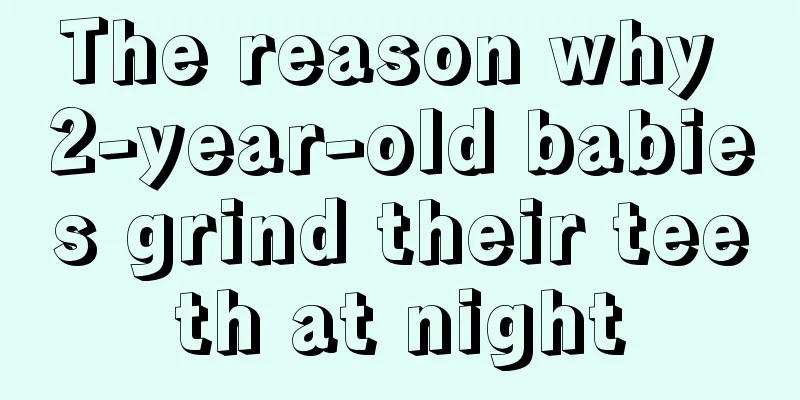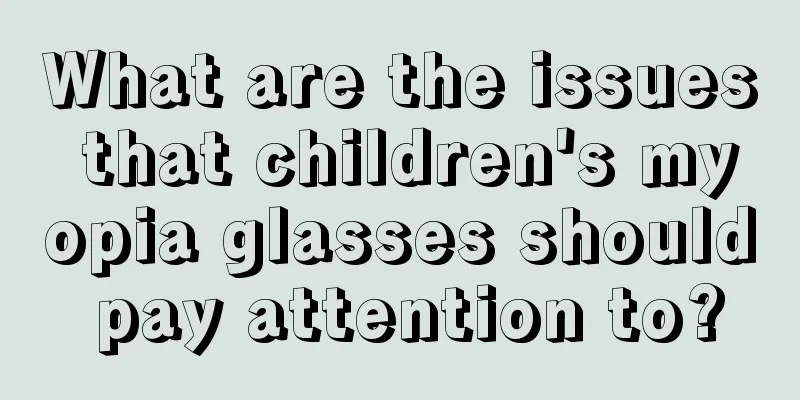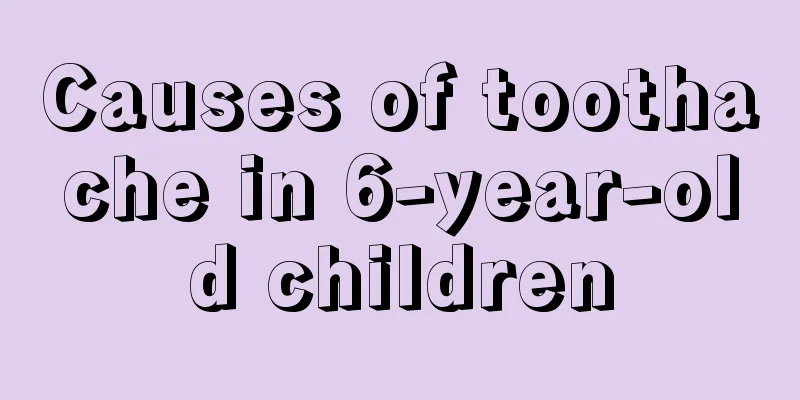The reason why 2-year-old babies grind their teeth at night

|
Night is the best rest time for our body. The same goes for children. They must have a good sleep to grow better. Therefore, if the baby is troubled by the problem of teeth grinding at night, parents must pay attention to it. There are many ways to treat teeth grinding. Children still need to adopt some simpler methods. Next, we will introduce in detail the reasons why 2-year-old babies grind their teeth at night. 1. Intestinal ascariasis; 2. Pinworm disease Pinworms parasitize in the large intestine of children. When the child is asleep, they crawl to the outside of the anus to lay eggs, causing itching of the anus, making the child restless at night and causing teeth grinding. 3. Overeating at dinner If children eat too much at dinner, there will still be a lot of food in their stomachs after they fall asleep. The entire digestive system has to work overtime, and the chewing muscles are also mobilized to contract involuntarily, causing bruxism. 4. Overexcitement of the nerves. Some children do not grind their teeth normally, but if they listen to exciting stories or watch TV with tense plots, they will grind their teeth during sleep. This is because their nerves are overexcited. 5. Sleeping with your head covered can also cause lack of oxygen and accumulation of carbon dioxide, which can stimulate the brain and cause nighttime bruxism. Nocturnal bruxism usually occurs due to nerve reflex after falling asleep. At this time, there is no food in the mouth and saliva secretion is low. The teeth cannot be lubricated and can only grind up and down, causing tooth wear. Nighttime bruxism causes wear on the incisal edges of the front teeth, shortening and deforming the front teeth, and grinding the occlusal surfaces of the back teeth into flat plates, which affects the chewing function of the teeth, can cause strain on the chewing muscles, and even cause damage to the periodontal tissues and temporomandibular joints; due to the wear of the enamel and exposure of the dentin, allergic symptoms such as soreness and pain occur, and in severe cases, pulpitis may occur. The above content is an introduction to the reasons why 2-year-old babies grind their teeth at night. You can make some appropriate adjustments in diet, and the baby's behavioral activities also need to be restricted. Too much energy during the day can easily lead to teeth grinding at night, but many of them are normal physiological phenomena of growth. |
<<: What to do if your 1-year-old baby has allergic rhinitis
>>: Does a three-month-old baby need an injection if he has a fever?
Recommend
What medicine should a newborn baby take for fever
It is very common for newborns to have fever. For...
Reasons why babies kick off the quilt when sleeping at night
Every child has a different physical condition. M...
What to do if your child coughs and vomits in the middle of the night
Every parent hopes that their children can grow u...
What are the symptoms of zinc deficiency in eight-month-old babies?
The health of the baby is an issue that every fam...
Do pediatric bronchodilators have side effects?
Bronchodilators are actually an antiasthmatic dru...
How to feed a five-month-old baby
We all say that babies are angels, but it is not ...
Can newborns sleep on a cool mat?
In the hot summer, the baby's metabolism is v...
Baby's forehead hit big bump
Every baby is an angel sent by God, born lively, ...
What should I do if my baby doesn’t sleep well?
I believe that many young mothers have this probl...
What medicine should children take if they catch a cold and vomit?
Because children's bodies are not yet fully d...
Why is urine cloudy in children?
Urine can often reflect a person's physical c...
What is the baby's development standard at five months of pregnancy?
What are the development standards for a baby at ...
How do children train their abdominal muscles?
Physical exercise is actually suitable for certai...
Sleep time and precautions for seven-month-old babies
A seven-month-old baby is in a critical stage of ...
What are the reasons why a four-month-old baby cries at night?
In response to different pathological reactions, ...









